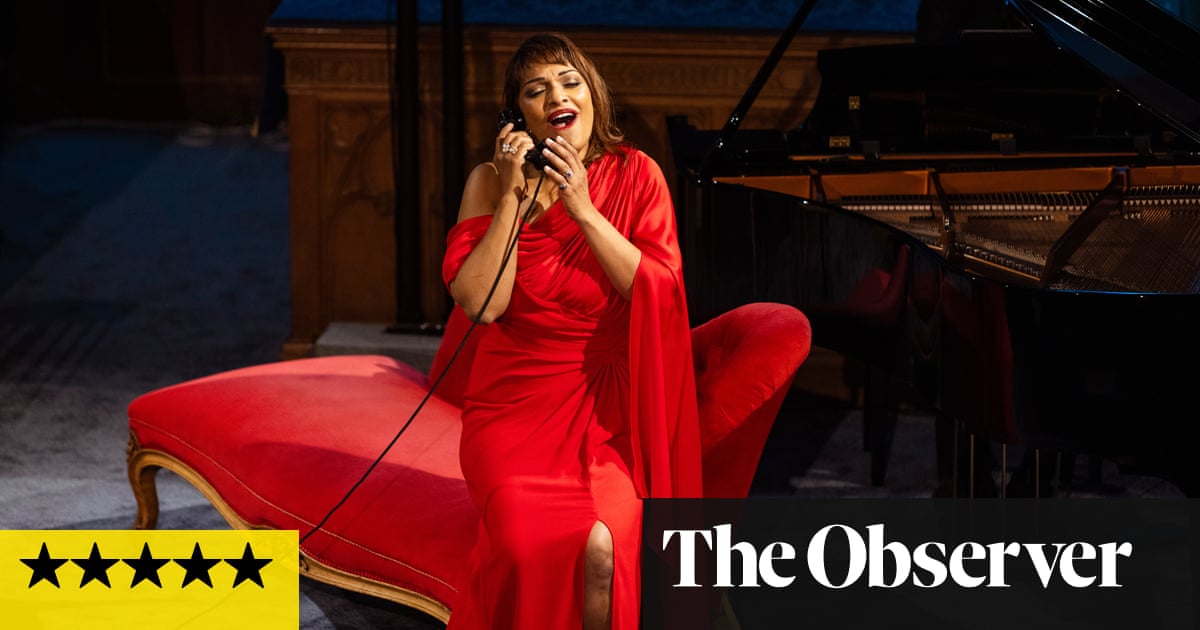
s there a choral singer anywhere who doesn’t know Christopher Smart’s cat, Jeoffry? Smart’s feline companion is the subject of 74 enchanting lines of his visionary poem Jubilate Agno (1759-63), set to music by Benjamin Britten in his cantata Rejoice in the Lamb. Smart’s poem was written in an asylum where he had been incarcerated – for mania – with only Jeoffry for company.
This real-life feline is the subject of my book, Jeoffry: The Poet’s Cat, in which I wanted to capture how a cat could be both solace and muse to the creative artist.
The internet is awash with photographs of musical figures, from Shostakovich to John Cage, happily cradling thrumming bundles of fur and eyes. Is it simply the abundance of cat poetry, so ripe for musical setting, that attracts composers? Or is there something inherently musical in the physical and vocal elegance of cats? Smart noted that although Jeoffry’s voice lacked a certain melodiousness, he could “tread to all the measures upon the musick”.
Scarlatti’s cat Pulcinella apparently scurried over the keys of a harpsichord and gave rise to a theme for a “cat fugue”. Brahms was (falsely) accused of killing cats, so as to notate their dying cries. Michael Tippett mourned a cat who actually was killed, poisoned by an angry neighbour. And so here are 10 of my favourite examples of music’s ability to harness and celebrate felineness. I have brazenly omitted Rossini’s Cat Duet, which isn’t by Rossini anyway.
It was at WH Auden’s suggestion that Britten set Smart’s Jubilate Agno to music in 1943 in the mid-war hush between the blitz and the doodlebugs. The cantata was written for St Matthew’s Church, Northampton, and the commission came from the church’s vicar, Walter Hussey, who raised some objection to Britten including the lines about Jeoffry, around whom organ semiquavers wreathe and frolic in “elegant quickness”. But Britten stood firm. “I am afraid I have gone ahead, and used a bit about the cat Jeffrey [sic],” he told Hussey. “He is such a nice cat.” Britten, by the way, kept dachshunds. But we’ll forgive him.
Ruth Gipps: The Cat
Jeoffry, again. Smart’s poem was also used by Ruth Gipps in her 1947 cantata, The Cat (also setting cat verse by Swinburne and by Michael Joseph). Gipps stuck resolutely, and often grumpily, to tonality during a century that had other ideas. Her music is enjoying a revival, but The Cat (the first composition by a woman to be accepted for a doctorate) remains unperformed and unrecorded.
Humphrey Searle: Two Practical Cats
Let other pens dwell on a certain musical. Here are two of TS Eliot’s cat poems, Macavity and Growltiger, set to music in Eliot’s lifetime by Humphrey Searle, a pioneer of British serialism and a devoted cat lover. Searle releases rather than imprisons the verse by having it not sung but declaimed. A trio of flute, guitar and cello provides accompaniment of scurrying atonal mystery. Like many of the composers on this list, Searle realises that to miss the seriousness of cats is to miss their wit.
Francis Poulenc: Ba, Be, Bi, Bo, Bu
Poulenc’s true allegiance was to dogs, but this unpromisingly titled song from his cycle La Courte Paille (1960), sets a children’s rhyme about Puss in Boots in less than 30 seconds.
Hans Werner Henze: The English Cat
Is this the only opera where almost every character is a cat? Edward Bond’s libretto adapts an allegorical morality tale by Balzac, and its synopsis is a joy: “The opera is set in London in the 1890s. A group of bourgeois cats has formed the Royal Society for the Protection of Rats.” Henze is in predominantly neoclassical mode, lyrical and colourful, adding treble recorders and a brilliant array of percussion to his orchestra. The New York Times thought this work, from 1983, found Henze “maturing into greatness”, and the prospect of seeing today’s leading singers in full feline regalia would be reason enough for a revival.
Alvin Curran: Light Flowers Dark Flowers
A pupil of Elliott Carter and a brilliant manipulator of recorded sound, Alvin Curran opens this haunting piece (featuring toy piano and electronics) with a recording of a cat’s purr.
Priaulx Rainier: The Prayer of the Cat
The South-African composer Priaulx Rainier was thought by Yehudi Menuhin to have a “musical imagination of a colour and variety scarcely to be believed”, but her work is mostly forgotten. There has been no known performance of this piece since its premiere, by the tenor Peter Pears, in 1976. The cat’s prayer is part of a larger cycle, Prayers from the Ark, setting verse by the French poet Carmen Bernos de Gasztold. After an introduction from Noah, each animal raises a prayer to God in turn. An accompanying harp skitters and swoops, then strikes an E-flat to cue the cat, who, beautifully capricious, sings an E-natural. Rainier knew about cats, as is clear from her direction in the score: “spoken proudly.” The music is grave, stark, beautiful, even as the cat prays solemnly for a saucer of milk and then politely requests a curse be placed on all dogs.
Samuel Barber: The Monk and his Cat
This ninth-century Old Irish poem is a loving tribute from a monk to his white cat, Pangur Bán. Auden’s translation was set to music by Samuel Barber.
Maurice Ravel: L’Enfant et les Sortilèges
Using Colette’s exquisite libretto, Ravel’s magical opera is about a child punished for his tantrums. To music of sheer feline eroticism, a daring parody of Wagner, two cats yowl their love to one another by moonlight. Ravel’s fondness for cats (he favoured Siamese) bordered on passion, and he assured visitors he could speak their language with some fluency, fussing over different kinds of “miaow” in the libretto.
Igor Stravinsky: The Owl and the Pussy-cat
Half a century after writing his Cat Lullabies (1914), Stravinsky proved that his final, serialist, phase could be both playful and beautiful: the setting of Edward Lear’s poem contains no fewer than five tone-rows, an intricate weave of all 12 notes in the chromatic scale, mirrored and reversed and tumbled, like any cat prancing up and down a piano. The song is, like Smart’s cat Jeoffry, and like so many of these pieces, a mixture of “gravity and waggery”. It was the last thing Stravinsky wrote.
• Oliver Soden’s Jeoffry, the Poet’s Cat is out now, published by the History Press.












